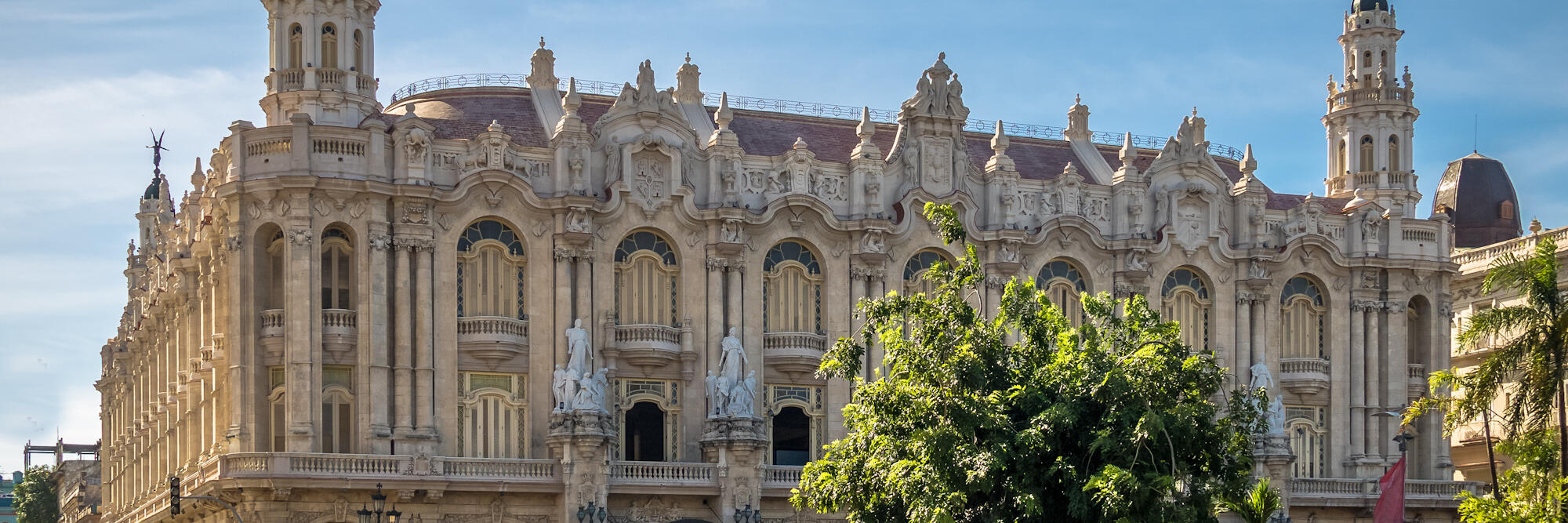José is an international consultant passionate about real estate and helping people find solutions that improve their lives. He loves travelling, learning languages, and connecting with people from different cultures.

About José
Q: Where are you originally from?
A: Spain
Q: What country and city did you move to?
A: La Habana, Cuba
Q: When did you move?
A: March 2025
Q: Is this your first expat experience?
A: No
Q: Did you move here alone or with a spouse/partner or family?
A: Alone
Q: Reason for moving?
A: Cost of living and culture
Living in Havana
Q: What do you enjoy most about Havana and Cuba in general?
A: What I enjoy most about Sevilla is its vibrant culture, beautiful architecture, and the warmth of the people. Moving to Cuba, I’m fascinated by the lively local traditions, the sense of community, and the relaxed pace of life, which together create a welcoming and enriching experience.
Q: Have you had any low points? What do you miss most about Spain?
A: Of course, there have been some low points – adapting to a completely different system and way of life in Cuba can be challenging at times. What I miss most about home, especially Sevilla, is the ease of certain services, the food, and being close to family and long-time friends. But living here also teaches me resilience and the value of community, which helps me overcome those moments.
Q: What misconceptions about Havana, if any, have you learned were not true?
A: I initially thought that life in Cuba would be extremely difficult and very limited due to shortages and bureaucracy. While there are challenges, I’ve learned that living in the right community, building local connections, and planning ahead make everyday life much more manageable than I expected. The warmth of the people and the vibrant culture are far richer than I had imagined.
Q: What are the biggest adjustments you had to make when settling into expat life in Havana? Did you experience culture shock at all?
A: One of the biggest adjustments was getting used to the pace of life and the way services are organized, which can be very different from Spain. I also had to adapt to the local culture and daily routines, from shopping to transportation. There was some culture shock at first, but being part of a supportive expat community and connecting with locals helped me settle in much more smoothly.
Q: What are your favourite things to do on the weekend? Any particular places or experiences you’d recommend to fellow expats?
A: On weekends, I enjoy exploring local culture and nature. Some of my favorite activities include visiting Viñales for its beautiful landscapes, strolling through the streets of Old Havana, and enjoying live music in local cafés. I also love spending time with fellow expats at community gatherings or simply relaxing at the beach. For anyone new here, I’d definitely recommend taking part in cultural events and excursions to get a real feel for the country.
Q: What’s the cost of living in Havana compared to Spain? Are there specific things that are especially expensive or cheap there?
A: The cost of living in Cuba is significantly lower than in Spain. With the same budget that barely covers essentials at home, you can live much more comfortably here. Everyday goods like local food, transportation, and services are quite affordable, while imported products, electronics, and certain luxury items can be relatively expensive. Overall, careful planning and local connections make living here very manageable.
Q: What’s public transport like in Havana and across Cuba?
A: Public transport in Havana and other parts of Cuba is functional but can be unpredictable. In the city, buses and shared taxis (colectivos) are commonly used and affordable, though schedules aren’t always reliable. For longer distances, intercity buses and domestic flights are available, but planning ahead is essential. Many expats also rely on private drivers or car rentals for convenience and flexibility.
Q: What do you think of the healthcare available in Havana? What should expats expect from local doctors and hospitals?
A: Healthcare in Cuba is accessible and generally of good quality for basic and preventive care. Expats should expect that public hospitals can be crowded, and some equipment or medications may be limited, so planning ahead is important. Many expats choose to supplement local care with private clinics, which offer faster service and more comfort. Overall, doctors are skilled and dedicated, and the healthcare system provides essential support for daily needs.
Q: What’s the standard of housing like in Havana? What different options are available?
A: Housing in Havana varies widely depending on the neighborhood. In areas like Miramar, Vedado, and Playa, you can find modern apartments, well-maintained houses, and even gated communities, often with amenities like pools and gardens. Other parts of the city may have more basic or older housing. Expats have options ranging from fully furnished apartments and casas particulares to long-term rentals in shared or private homes, depending on budget and lifestyle preferences.
Q: Are there any areas or suburbs you’d recommend for expats to live in?
A: For expats, some of the most recommended areas in Havana are Miramar, Vedado, and Playa. These neighborhoods offer safer streets, better infrastructure, and a variety of services like supermarkets, restaurants, and gyms. They also have a strong expat community, which makes settling in easier and more comfortable.
Meeting people and making friends in Havana, Cuba
Q: Was meeting people and making friends in Havana easy? How did you go about meeting new people?
A: Meeting people and making friends in Cuba can be easier than expected, especially if you take part in community activities and local events. Joining expat groups, attending cultural gatherings, and simply connecting with neighbors are great ways to build a network. I found that sharing interests and hobbies with both locals and fellow expatriates makes friendships come naturally and quickly.
Q: Have you made friends with locals, or do you mix mainly with other expats? What advice would you give to new expats looking to make friends with the locals?
A: I’ve been fortunate to make friends both with locals and other expats. Spending time with locals gives you a deeper understanding of Cuban culture and daily life, while connecting with fellow expats provides support and shared experiences. My advice for new expats is to be open, respectful, and curious: participate in community events, learn a bit of local customs, and don’t be afraid to strike up conversations – Cubans are generally warm and welcoming.
Q: What’s it like to live in a supportive expat community in Cuba?
A: Living in a community of fellow expatriates makes a huge difference. It provides social support, shared experiences, and a sense of belonging, which is especially important in a country where navigating daily life can be challenging. Having friends and neighbors you can rely on makes the experience much more enjoyable and manageable.
Working in Havana, Cuba
Q: How easy or difficult was getting a work permit or visa? Did you tackle the visa process yourself, or did you enlist the services of an immigration consultant?
A: I’m currently staying in Cuba on a tourist visa, which can be renewed every six months. The process of extending it has been straightforward so far, and I’ve handled it myself without the need for an immigration consultant. It’s important to stay informed about the latest regulations and renewal requirements, but overall, it has been manageable.
Q: What is the economic climate in Havana like?
A: The economic climate in Havana is unique and quite different from what I was used to in Spain. While there are challenges due to shortages, currency fluctuations, and limited access to some goods, there are also opportunities for small businesses, tourism-related activities, and services catering to expats. Overall, living here requires careful planning and adaptability, but it’s manageable once you understand the local systems.
Q: How does the work culture in Havana differ from Spain?
A: The work culture in Cuba is quite different from that in Spain. It tends to be more flexible with schedules, and processes can take longer due to bureaucracy. Collaboration and personal relationships are highly valued, and there is a strong sense of community in workplaces. Overall, it requires patience, adaptability, and a willingness to navigate things at a different pace than at home.
Final thoughts
Q: Any advice you’d like to offer to new arrivals in Havana?
A: My advice to new arrivals in Cuba is to be patient, flexible, and open-minded. Learn about the local customs, build connections with both locals and fellow expats, and join community activities – it makes settling in much easier. Planning ahead for daily needs, like groceries and transport, will also help avoid frustration. Most importantly, embrace the culture and the pace of life – it’s a big part of the experience.
►Interviewed in October 2025



